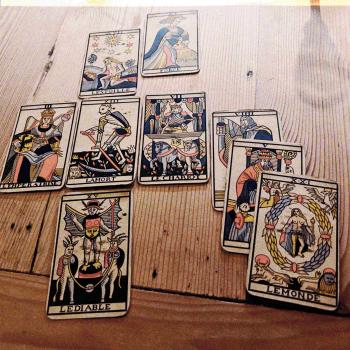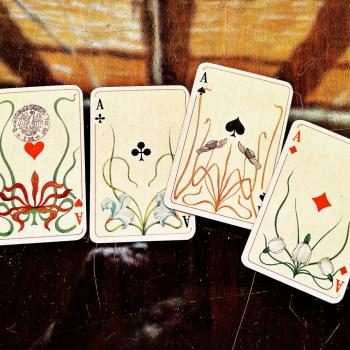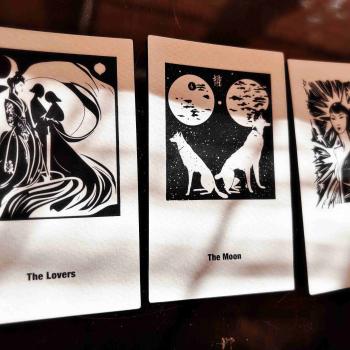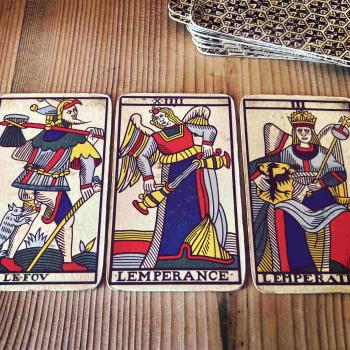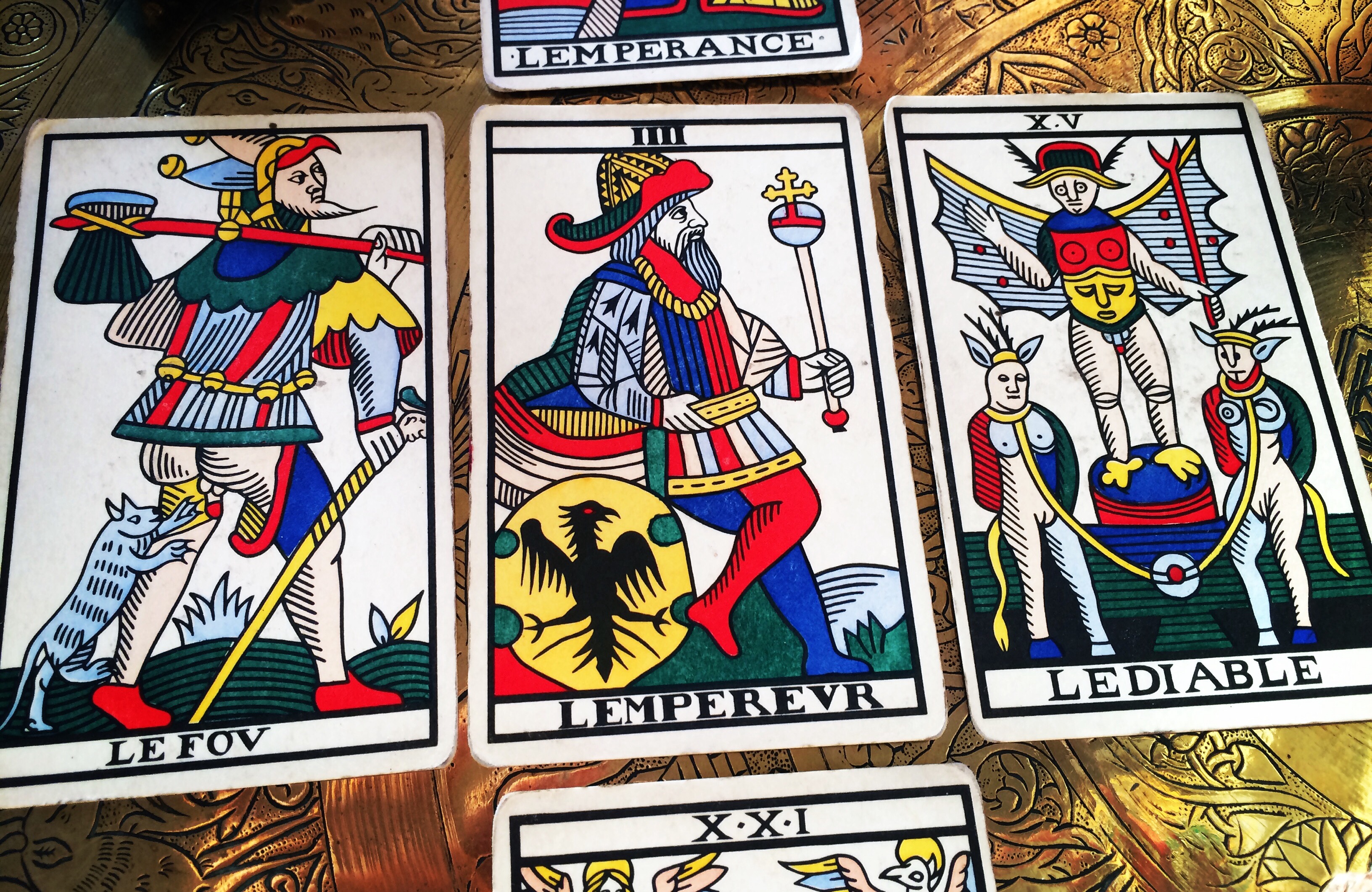
You probably heard it before: you create true wealth when you enter all partnerships (business or family) on a premise that says you must pay it forward (with your trust and openness).
Now, while many know this, few practice it. The lack of practicing openness and easy going about it often has to do with making assumptions. Making assumptions rests on a premise of adopting a position of knowing, even all-knowing. Bad idea.
As experience shows, in order for partnerships to work, all knowing must be dropped. There is nothing we can ever know. All we can do is live and learn, and play close attention to acts and language.
As much of the fortunetelling business is precisely all about narratives of relationships, even if a relationship is with your own good self, we get to hear a lot about people’s anguish when they decide to do something together with others (make money or make children).
Here is a useful layout that I have designed in order to bring out what is unspoken in a contract.
The Pretended and the Hidden
Lay down three cards that tell you something about the situation at hand.
Place a card on top of that will tell you something about what the other pretends.
Place a card at bottom that will tell you something about what the other hides.
Just a note, before I proceed to give an example:
Why must we assume that the other pretends, or hides anything? Because, as I said, most partnerships lack the premise of paying it forward. Lust can be mistaken for love, the preservation of status-quo can be mistaken for family values, contributing to society can be mistaken for keeping up with the Joneses. Misunderstandings are more common than uncommon.
So people come to fortunetellers to get a sense of what is at stake in entering a partnership, and whether the condition for creating real wealth is honored and present.
Now, let’s look at an example that illustrates why consulting the cards can be a very good idea:
Someone wants to know about her partner’s motivations to start a business. The cards here are all read for this other person.
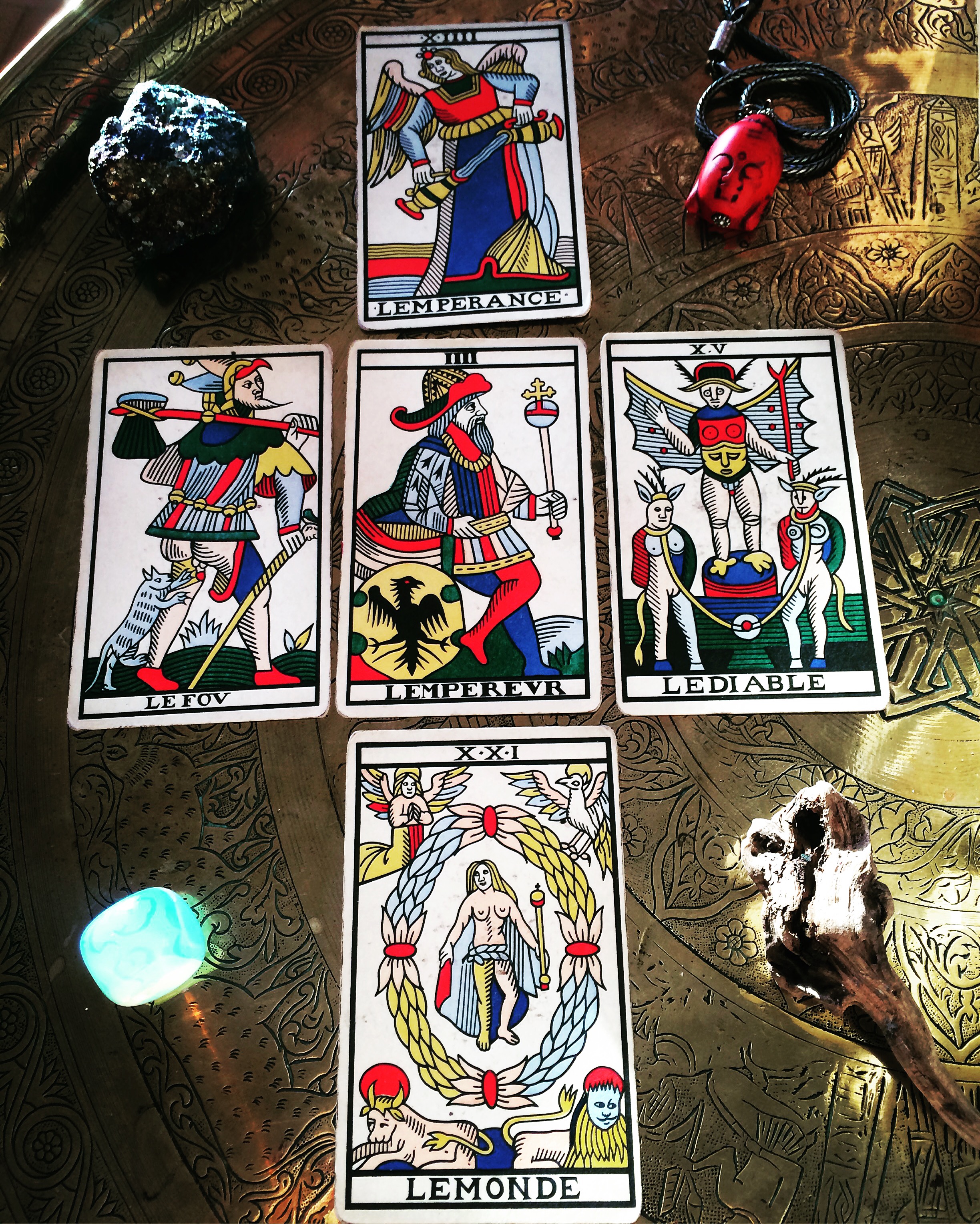
Here’s what we get on the horizontal axis:
The Fool, The Emperor, The Devil
Straightforwardly we read this string like this:
The fool empowers himself and commands in hell.
This is not a good picture. The fact that the Emperor gets to cut deals under the table – the domain of the Devil’s underground – tells us something about his nature: Once a fool, always a fool.
The Fool may don an imperial costume, and he may even accomplish great things, but if the domain ruled over is hell, then we understand that this is not the fool we want in our family.
Let’s look at the cards on top (what is pretended? Temperance) and bottom (what is hidden? The World):
The partner here pretends to be a diplomat smoothing out all relations, and keeping things in balance. In reality, he hides a whole world.
To have the World card in this position is actually very bad news, as it means that no matter what assumptions you make about this person, none of them will turn out to be correct. When a world is hidden, it simply means that everything else above the horizon, in the realm of public manifestation, is an act, a pretense from A to Z that has no real value beyond pretense.
As with all things hidden, having a secret can be interesting. It makes things more romantic, if you’re the kind of person who favors narratives of emotions, but when everything is hidden, then you can be sure that there’s nothing you will be able to do in this partnership that will be the result of paying it forward in a mutual way.
Then, of course, as some secrets can be nasty, you can also expect to engage in making decisions that will affect what you have put yourself put into it that’s aligned with your desire for symmetrical relations, now dishonored.
So, a simple layout describing the situation, what is pretended and what is hidden, can disclose to what extent what you hope for in your partnership can be delivered and thus considered a thing of true value, creating value.
Good luck with your detective work. Digging into motives, yours and others, is always a revealing act. It makes you ask the ultimate question:
What is the real pay off, when misunderstanding is eliminated from the equation, when there’s room for something other than pretense, when not everything is hidden, when the domain ruled over is not one of darkness, but rather, one of clarity and openness?
♠
More of this? Stay in the loop.

Patheos Pagan on Facebook.

the Agora on Facebook
The Cartomancer is published twice monthly on the Wednesdays here on the Agora. Subscribe via RSS or e-mail!
Please use the links to the right to keep on top of activities here on the Agora as well as across the entire Patheos Pagan channel.






